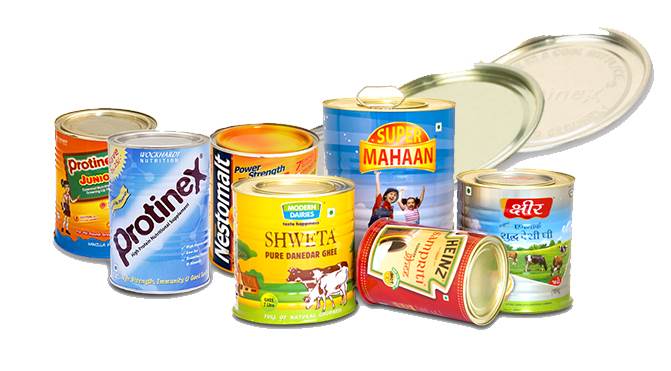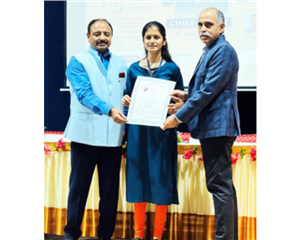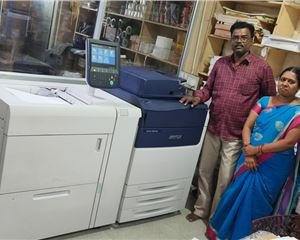Metal-container makers' SOS to Steel Ministry
Metal-container makers want ISO standards to be considered along with BIS. The Metal Container Manufacturers’ Association recommends the Quality Control Order which was issued in July be dropped since it will impact the metal packaging industry.
17 Dec 2020 | By Abhishek Muralidharan
The Metal Container Manufacturers’ Association (MCMA) has requested the Steel Ministry to delay the implementation of the BIS norms - and postpone its implementation till 31 March 2022. Also, they have requested the ministry to consider ISO certification in addition to BIS for sourcing raw materials.
The Steel Ministry has been requested to allow the use of materials that are aligned to ISO. This has already been included in FSSAI order and recommended by the MSME Ministry.
On 17 July 2020, the Ministry of Steel, the government of India issued an order called: the steel and steel products quality control order (QCO). This QCO imposed mandatory BIS Certification on the major input required by the industry like tinplate/tin-free steel. Furthermore, it imposed restrictions on steel products like easy-open ends, peel off ends, which the industry is importing from various countries. Sanjay Bhatia, the president of the MCMA and the director of Hindustan Tin Works, said, "The QCO has been notified at a time when the entire industry is struggling hard to reset their business during these Covid-19 times. Also, it is virtually impossible to force the international suppliers to go for BIS certifications as the procedure of BIS registration is highly cumbersome."
As per an official statement issued by the MCMA, "The ₹10,000-crore metal container packaging industry is in a crisis due to the shortage of raw material used for packaging food and other items that have resulted in an increase in prices of packaging items." The tin containers and closures are used for packing of edible and non-edible products. And the tin-free steel is mainly required to manufacture crowns, closures and components used to seal bottles for soft drinks, beer, juices and flavoured milk.
WhatPackaging? magazine has learnt that a representation had been made to Dharmendra Pradhan, who is the steel minister. The MCMA has requested the ministry that the mandate directing the use of BIS certified steel be delayed till 31 March 2022.
Bhatia said, "Today, the industry requires seven-lakh tonnes of raw material, about 4.5-lakh tonnes is produced by the Tinplate Company and JSW Steel, while the rest is imported. Since the order directly impacts imports, there is a raw material shortage and this has resulted in upward price revisions."
Bhatia added that the steel and steel products quality control order dated July 17, 2020, which directs usage of BIS certified raw materials, has had a huge impact on the country’s metal container packaging industry. "This has resulted in a shortage of raw material as imported inputs do not have BIS certification."
“Following representations by the MCMA, the government which had ordered that this will come into implementation from 17 January, had postponed it till 17 April 2020. However, the industry needs some more time, he said.
Orders in 2008, 2015, 2017 too
The MCMA press briefing stated that similar quality control orders had been brought in 2008, 2015 and 2017. These were withdrawn due to practical difficulties in implementation.
WhatPackaging? readers will recall that the government issued an order to bring 16 steel products under quality control. The order stated that "the notified steel items cannot be produced, sold/traded, imported and stocked unless they bear BIS mark." Domestic manufacturers of these items had to obtain BIS certification mark licenses. Foreign suppliers willing to supply these items to India have to obtain BIS registration.
In that statement which was issued on 20 June 2018, the Steel Ministry said it has decided to cover tinplates used in food, food additives, drug and medicines, under the mandatory quality control regime and the process is being initiated. Tinplate is largely used in the packaging of food and food additives as well as drugs and medicines and beverages besides other non-critical and non-food applications.
On 24 December 2018, the FSSAI had issued a notification about the usage of prime tinplate for food products. The FSSAI allowed the use of equivalent international standards for tinplate and tin-free steel along with relevant BIS standard since they were considered to be equivalent International Standard.
MCMA members feel that due to the Covid-19 situation and the pandemic threat, the foreign tinplate mills may not be in a position to procure the relevant BIS licence.
Sanjay Bhatia said, "For international suppliers of tinplates, India is a small market. The international suppliers are not interested to get into lengthy bureaucratic and cost-intensive BIS certification procedures." He added, "These suppliers have stopped shipping tinplates to India and there is already a shortage in the domestic market."
This is the reason the association has insisted that "ISO certification be considered in addition to BIS-like FSSAI."
MCMA recommendations - At a glance

- QCO should be dropped as it will impact the metal packaging industry, which employs more than a lakh people and generates revenue
- Process food industry is a thrust sector - and tin containers are an essential packaging material. Therefore any restrictions on import of easy-open ends / peel-off ends (steel products) will affect the availability of cans. Presently, this integral component of a tin container is not manufactured (sufficiently, manufactured) in India
- Keeping in mind the demand-supply gap, the MCMA has requested the Ministry of Steel to allow the use of materials which are aligned to ISO certification. This has already been included in FSSAI order as well as recommended by the Ministry of MSME
- To defer this notification till March 2022
- Also the foreign tinplate mills will not be able to procure the relevant BIS license during the current pandemic period. Therefore, the proposal to implement the order after nine (now extended by another three months) months is not recommended at all
- Government should consider setting up a development fund to provide soft loans to the industry in order to develop the domestic capability for producing such products in the country













 See All
See All